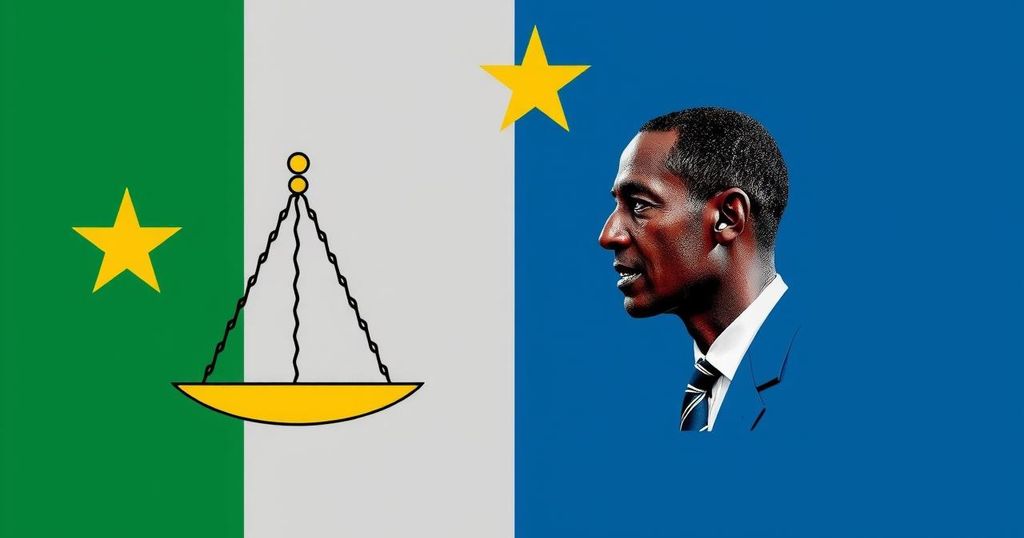Controversy Over Constitutional Review in the DRC: A Potential Bid for Extended Presidential Tenure

The DRC is considering constitutional reforms that may extend President Tshisekedi’s tenure, prompting opposition concerns about potential power retention. Tshisekedi advocates for a constitution that aligns with national realities, while opposition leaders and the Catholic Church warn against reforms that could destabilize the nation.
The Democratic Republic of the Congo (DRC) is contemplating a constitutional review that may allow President Felix Tshisekedi to extend his tenure. Augustin Kabuya, the interim chairperson of Tshisekedi’s political party, the Union for Democracy and Social Progress (UDPS), stated that the current constitution has shown inadequacies in the governance of public power. The proposed reforms have raised alarms among opposition figures who fear they could pave the way for Tshisekedi to maintain power beyond the constitutional limits. President Tshisekedi has publicly declared the need for a constitution that aligns with Congolese realities, emphasizing that the existing laws, drafted by foreigners, do not effectively represent the nation’s governance needs. He plans to establish a national commission next year, comprising Congolese individuals from various disciplines, to develop a new constitution. While the prevailing law permits a two-term limit for presidents, Tshisekedi insists that changes in governance processes are urgently needed. Opposition leaders, including Moïse Katumbi and Martin Fayulu, have vowed to resist any changes, asserting that the current constitution suffices for societal governance. The Catholic Church’s leadership has also cautioned against constitutional revisions, warning that it might destabilize the country amid existing tensions. The discussion surrounding the constitutional review thus raises critical questions about the preservation of democratic principles in the DRC.
The constitutional debate in the Democratic Republic of the Congo is rooted in its history of political instability and governance challenges. The current constitution was established in 2006 to facilitate a transition to democracy following years of conflict and authoritarian rule. The push for reform comes amidst accusations of power clinging by the ruling party, reminiscent of past political maneuvers during Joseph Kabila’s presidency. As the nation grapples with institutional functioning and national identity, the proposal for constitutional changes reflects a deeper struggle between the ruling party’s ambitions and the opposition’s commitment to upholding democratic processes.
The ongoing discussions regarding a potential constitutional review in the DRC highlight the delicate balance of power and the challenges of governance in the country. While President Tshisekedi advocates for a constitution that better reflects Congolese realities, the opposition and civil organizations, including the Catholic Church, firmly oppose any modifications that might entrench his power. The outcome of this debate will significantly impact the DRC’s political landscape and its commitment to democratic governance.
Original Source: www.monitor.co.ug







